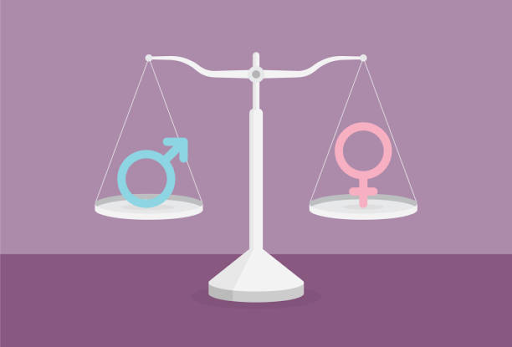Blogs | Career | Contact Us
International Public School
Lugharwada , Jabalpur Road ,Seoni(M.P)-480661
Gender Sensitivity Programme
Gender equality is a fundamental principle of human rights and a cornerstone of a just and equitable society. Recognizing the importance of gender sensitivity and equality in education, the Central Board of Secondary Education (CBSE) has embarked on a journey to create an educational ecosystem that fosters gender inclusivity. This article delves into CBSE's initiatives, strategies, the impact of gender sensitivity in education, and the challenges faced in achieving this vital goal.

Understanding Gender Sensitivity in Education
Gender sensitivity in education refers to creating an environment where every student, regardless of their gender identity, feels safe, respected, and empowered. It involves addressing stereotypes, biases, and prejudices while promoting equal opportunities for all.
CBSE’s Endeavors Towards Gender Sensitivity
CBSE has undertaken several initiatives to promote gender sensitivity in its schools:
Gender-Neutral Curricula:
CBSE has developed gender-neutral curricula to ensure that textbooks and educational materials are free from gender biases.
Sensitization Programs:
CBSE conducts sensitization programs for teachers, students, and parents to raise awareness about gender issues and foster a culture of respect and equality.
Scholarships:
CBSE offers scholarships and incentives to encourage girls’ education, especially in STEM (Science, Technology, Engineering, and Mathematics) fields.
Safe and Inclusive Spaces:
CBSE schools are encouraged to create safe and inclusive spaces where students can discuss and address gender-related concerns.
The Impact of Gender Sensitivity
Promoting gender sensitivity in education has a profound impact
Empowerment:
Gender-sensitive education empowers students to challenge traditional gender roles and stereotypes.
Equal Opportunities:
It ensures that all students, regardless of gender, have equal access to education and opportunities.
Social Awareness:
Gender sensitivity fosters social awareness and encourages students to become advocates for gender equality.
Career Aspirations:
Girls are inspired to pursue careers in traditionally male-dominated fields, breaking barriers.
Challenges and Considerations
While CBSE’s efforts are commendable, challenges persist
Deep-Seated Stereotypes:
Addressing deeply ingrained gender stereotypes requires ongoing efforts at all levels.
Societal Pressures:
Societal expectations and pressures can influence students’ choices and beliefs about gender roles.
Teacher Training:
Continuous teacher training is essential to create a gender-sensitive classroom environment.
Parental Involvement:
Engaging parents in promoting gender sensitivity is crucial but can be challenging.
Conclusion
CBSE’s commitment to gender sensitivity is a testament to its dedication to providing an inclusive and equitable education. By actively challenging stereotypes and biases, CBSE is shaping a generation of students who value equality, respect diversity, and champion gender rights. The impact of gender-sensitive education extends far beyond the classroom, contributing to a society where every individual’s potential is recognized, regardless of gender. As CBSE continues to advocate for gender sensitivity in education, it plays a pivotal role in building a more inclusive and gender-equitable India. Gender-sensitive education is not just an aspiration; it is a pathway to a brighter and more equitable future where individuals are free to pursue their dreams, regardless of gender. CBSE’s efforts in this direction are pivotal in nurturing a generation of informed, empathetic, and gender-sensitive citizens who will lead India towards a future of true equality and empowerment.
